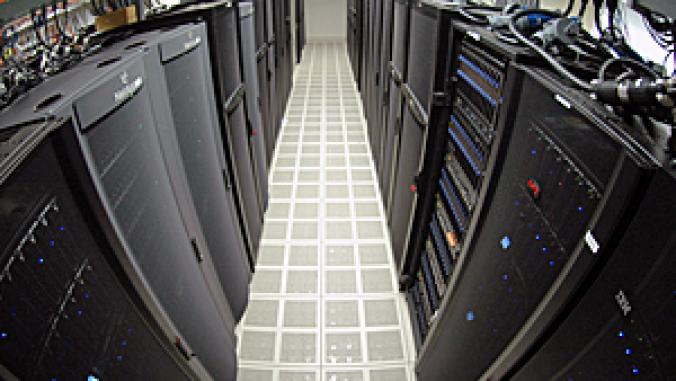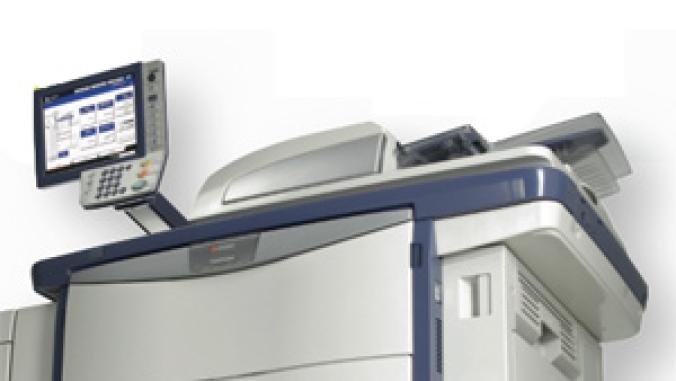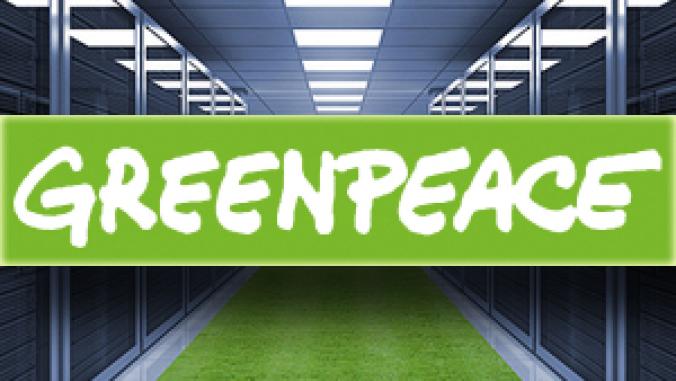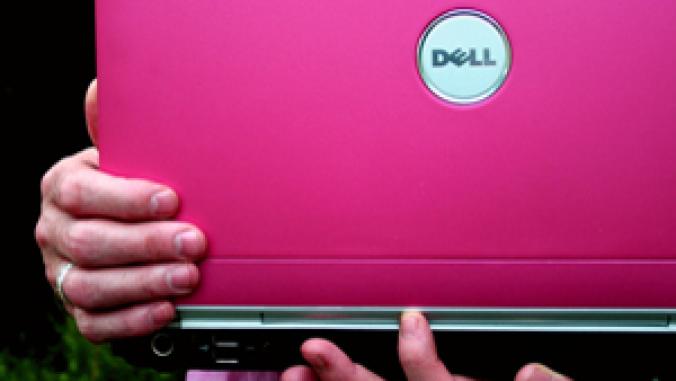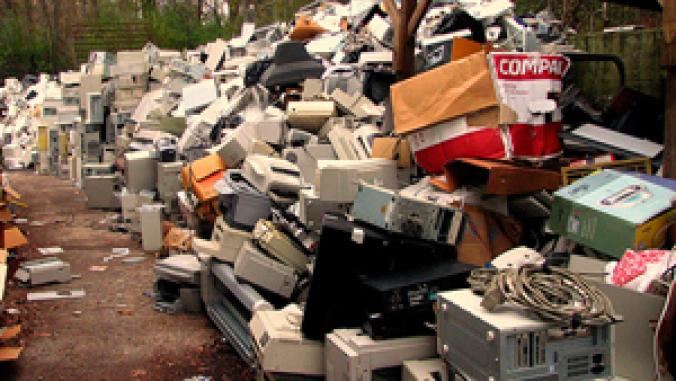Free Online Tool From Redemtech Helps Companies Assess Green IT's Benefits
The IT Asset Disposition company has released a free Sustainable Computing Assessment tool, sponsored by GreenerComputing.com, to help companies take advantage of best practices for ways that green IT can be a cost-cutting strategy.

Redemtech, a leading provider of Technology Change Management (TCM) and IT Asset Disposition (ITAD) services, today announced the launch of a free online tool to help companies measure how their Green IT policies stack up to best practices for saving money while reducing environmental impact. With industry experts predicting that Green IT will grow as a cost-cutting strategy in the current economy, Redemtech's Sustainable Computing Assessment provides an essential tool for helping companies assess the effectiveness of current strategies and identify areas for improvements.
Mainstream Green IT typically focuses on reducing energy consumption in data centers and on desktops by replacing systems with new, more energy-efficient computers. However, a recent IDC white paper, Beyond Power: IT's Roadmap to Sustainable Computing, found that these strategies can backfire and increase both environmental impact and IT costs. The white paper recommends a comprehensive approach that includes extending equipment lifecycles through redeployment, remarketing or charitable donation, ensuring responsible recycling, and more.
"While reducing data center energy consumption has been the low-hanging fruit in the pursuit of corporate environmentalism, this goal needs to be accomplished within the context of a more comprehensive approach to Green IT," said David Daoud, a research manager with IDC and author of Beyond Power. "We believe the opportunities to reduce costs and environmental footprint through Sustainable Computing practices will ultimately dwarf those available through a program focused only on energy consumption. This is the next phase in the evolution of Green IT."
Consistent with the Beyond Power approach, Redemtech's Sustainable Computing Assessment enables companies to measure their Green IT strategies against best practices such as extending equipment lifecycles, refurbishing and upgrading surplus technology and managing responsible recycling.
"Given the high stakes in the current economy, it's critical for IT executives to challenge conventional wisdom in looking at mainstream Green IT," said Robert Houghton, president of Redemtech. "Our Sustainable Computing Assessment is an essential tool that provides IT leaders with a fast, free, easy way to identify practical ways to improve and make sure strategies are delivering desired results."
Sponsored by GreenerComputing, the survey can be completed in about 15 minutes. Participants receive scores in key areas such as productivity, reuse, accountability, energy and environmental responsibility, and more. For companies seeking a more in-depth evaluation, Redemtech also offers an Advisory Practice that works with individual companies to develop a detailed assessment and consult on implementing best practices.
Industry Experts Predict Recession to Fuel Growth of Green IT
The economic meltdown is accelerating the Green IT trend, according to a variety of industry experts. For instance, based on a recent survey of 600 companies, Preston Gralla of GreenerComputing.com estimates that at least 75 percent of companies surveyed will be implementing a Green IT project in 2009, driven primarily by potential cost savings.
"With 2009 expected to be a breakout year for Green IT, Redemtech's assessment may help companies ensure strategies are well targeted," said Gralla. "The assessment reflects the idea that there are ideas for Green IT that go beyond the data center, such as extending the life of existing equipment, re-use of assets through redeployment of existing hardware, and taking a zero-impact approach to recycling equipment."
The Need to Reassess Green IT Strategies
While Green IT is expected to grow, mainstream strategies focused narrowly on energy efficiency may be counter-productive.
For instance, acquiring new systems requires substantial capital expense compared with extending lifecycles of existing systems. For every $1,000 in original cost, moving from a three-year to a four-year lifecycle generates savings of approximately $325. When lifecycles are extended to 4.5 years, the savings increase to nearly $500; at five years savings go to $650.
According to Gartner, more than 75 percent of PCs replaced are four or fewer years old, yet only 42 percent are re-used. A recent Gartner report also notes that replacing assets to reduce energy consumption could result in a net increase in the energy consumed if manufacture, transport and disposal are included.
Extending lifecycles rather than acquiring new equipment can generate a substantial impact on a company's bottom line. For instance, one Redemtech customer generated $9.2 million in savings during a 2-year period using a comprehensive Sustainable Computing approach.
From an environmental standpoint, manufacturing new PCs is an energy- and resource-intensive process. According to United Nations University, it takes 1.8 tons of raw materials and approximately 240 kilograms of fossil fuel to manufacture a PC which is about 81 percent of the energy the computer will use. According to the U.S EPA's Environmental Benefits Calculator, reusing 1,000 desktop computer systems creates a carbon offset equivalent to the energy required to power 681 homes for a year and the greenhouse gasses produced by 481 cars in a year.
In addition, recent government and media reports have revealed that many recyclers violate federal regulations by shipping e-waste about 80 percent of equipment collected for "recycling" to developing countries where it contributes to devastating environmental and human health problems. Redemtech has partnered with the environmental advocacy group Basel Action Network to produce a video on the effects of e-waste exports.
While defeating the purpose of a "green" initiative, this issue raises significant risks to corporate image. Exposés by 60 Minutes, Business Week, Time and other media outlets focused on specific recyclers and named customers of those companies, with 60 Minutes showing close-ups of asset tags identifying companies that once owned the equipment that had been exported to China.
"These reports show that companies can not simply accept a recycler's certificate of destruction as assurance that their assets won't end up in front of the 60 Minutes cameras," said Houghton. "It's more important than ever for companies to know where they stand relative to industry best practices for safeguarding the environment, boosting IT's bottom line and protecting their corporate image."
For additional information on Sustainable Computing visit www.redemtech.com/sustainablecomputing. The Sustainable Computing Assessment may be accessed directly at www.redemtech.com/assessment.
Mainstream Green IT typically focuses on reducing energy consumption in data centers and on desktops by replacing systems with new, more energy-efficient computers. However, a recent IDC white paper, Beyond Power: IT's Roadmap to Sustainable Computing, found that these strategies can backfire and increase both environmental impact and IT costs. The white paper recommends a comprehensive approach that includes extending equipment lifecycles through redeployment, remarketing or charitable donation, ensuring responsible recycling, and more.
"While reducing data center energy consumption has been the low-hanging fruit in the pursuit of corporate environmentalism, this goal needs to be accomplished within the context of a more comprehensive approach to Green IT," said David Daoud, a research manager with IDC and author of Beyond Power. "We believe the opportunities to reduce costs and environmental footprint through Sustainable Computing practices will ultimately dwarf those available through a program focused only on energy consumption. This is the next phase in the evolution of Green IT."
Consistent with the Beyond Power approach, Redemtech's Sustainable Computing Assessment enables companies to measure their Green IT strategies against best practices such as extending equipment lifecycles, refurbishing and upgrading surplus technology and managing responsible recycling.
"Given the high stakes in the current economy, it's critical for IT executives to challenge conventional wisdom in looking at mainstream Green IT," said Robert Houghton, president of Redemtech. "Our Sustainable Computing Assessment is an essential tool that provides IT leaders with a fast, free, easy way to identify practical ways to improve and make sure strategies are delivering desired results."
Sponsored by GreenerComputing, the survey can be completed in about 15 minutes. Participants receive scores in key areas such as productivity, reuse, accountability, energy and environmental responsibility, and more. For companies seeking a more in-depth evaluation, Redemtech also offers an Advisory Practice that works with individual companies to develop a detailed assessment and consult on implementing best practices.
Industry Experts Predict Recession to Fuel Growth of Green IT
The economic meltdown is accelerating the Green IT trend, according to a variety of industry experts. For instance, based on a recent survey of 600 companies, Preston Gralla of GreenerComputing.com estimates that at least 75 percent of companies surveyed will be implementing a Green IT project in 2009, driven primarily by potential cost savings.
"With 2009 expected to be a breakout year for Green IT, Redemtech's assessment may help companies ensure strategies are well targeted," said Gralla. "The assessment reflects the idea that there are ideas for Green IT that go beyond the data center, such as extending the life of existing equipment, re-use of assets through redeployment of existing hardware, and taking a zero-impact approach to recycling equipment."
The Need to Reassess Green IT Strategies
While Green IT is expected to grow, mainstream strategies focused narrowly on energy efficiency may be counter-productive.
For instance, acquiring new systems requires substantial capital expense compared with extending lifecycles of existing systems. For every $1,000 in original cost, moving from a three-year to a four-year lifecycle generates savings of approximately $325. When lifecycles are extended to 4.5 years, the savings increase to nearly $500; at five years savings go to $650.
According to Gartner, more than 75 percent of PCs replaced are four or fewer years old, yet only 42 percent are re-used. A recent Gartner report also notes that replacing assets to reduce energy consumption could result in a net increase in the energy consumed if manufacture, transport and disposal are included.
Extending lifecycles rather than acquiring new equipment can generate a substantial impact on a company's bottom line. For instance, one Redemtech customer generated $9.2 million in savings during a 2-year period using a comprehensive Sustainable Computing approach.
From an environmental standpoint, manufacturing new PCs is an energy- and resource-intensive process. According to United Nations University, it takes 1.8 tons of raw materials and approximately 240 kilograms of fossil fuel to manufacture a PC which is about 81 percent of the energy the computer will use. According to the U.S EPA's Environmental Benefits Calculator, reusing 1,000 desktop computer systems creates a carbon offset equivalent to the energy required to power 681 homes for a year and the greenhouse gasses produced by 481 cars in a year.
In addition, recent government and media reports have revealed that many recyclers violate federal regulations by shipping e-waste about 80 percent of equipment collected for "recycling" to developing countries where it contributes to devastating environmental and human health problems. Redemtech has partnered with the environmental advocacy group Basel Action Network to produce a video on the effects of e-waste exports.
While defeating the purpose of a "green" initiative, this issue raises significant risks to corporate image. Exposés by 60 Minutes, Business Week, Time and other media outlets focused on specific recyclers and named customers of those companies, with 60 Minutes showing close-ups of asset tags identifying companies that once owned the equipment that had been exported to China.
"These reports show that companies can not simply accept a recycler's certificate of destruction as assurance that their assets won't end up in front of the 60 Minutes cameras," said Houghton. "It's more important than ever for companies to know where they stand relative to industry best practices for safeguarding the environment, boosting IT's bottom line and protecting their corporate image."
For additional information on Sustainable Computing visit www.redemtech.com/sustainablecomputing. The Sustainable Computing Assessment may be accessed directly at www.redemtech.com/assessment.
